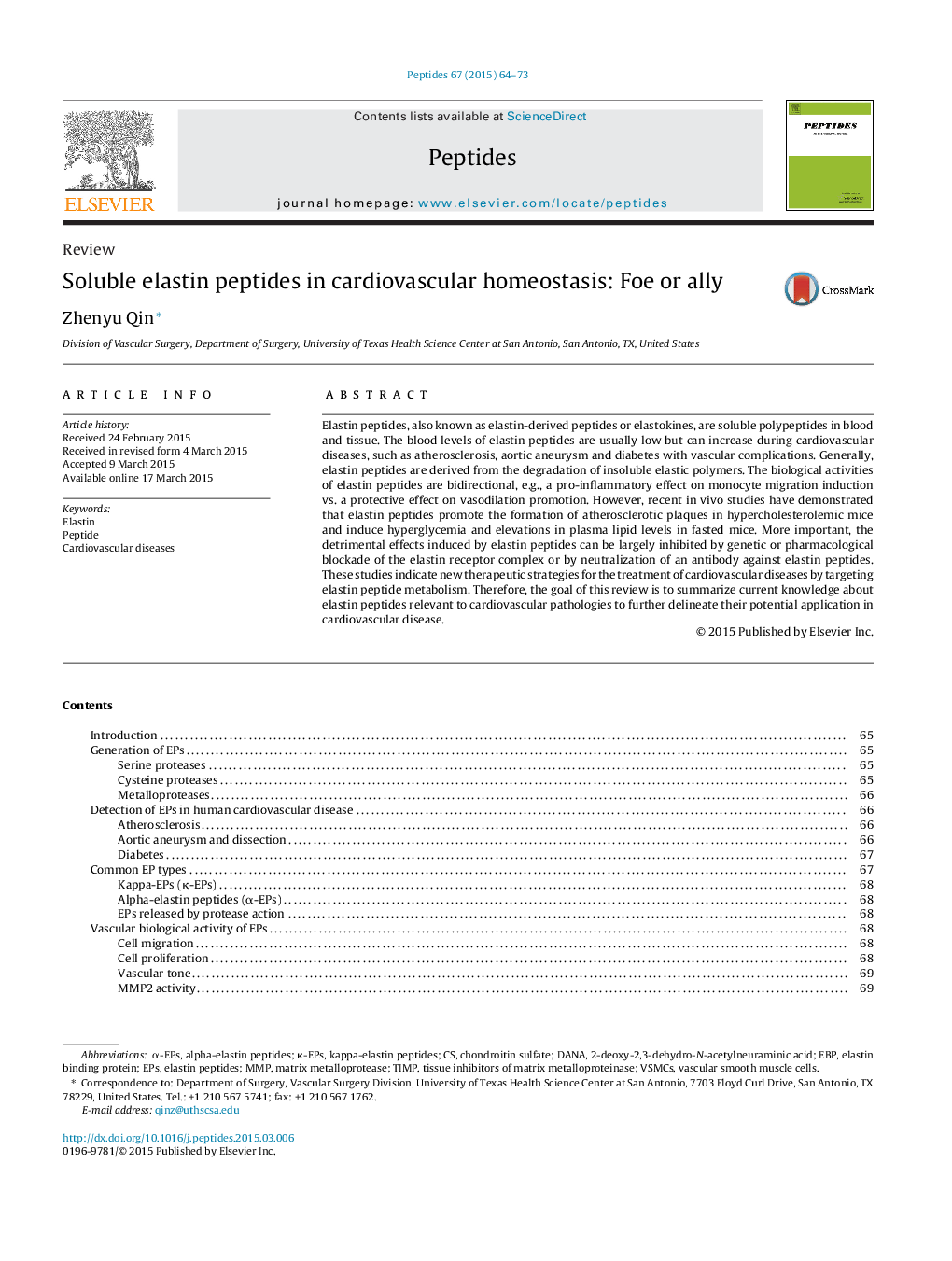| کد مقاله | کد نشریه | سال انتشار | مقاله انگلیسی | نسخه تمام متن |
|---|---|---|---|---|
| 8348112 | 1541712 | 2015 | 10 صفحه PDF | دانلود رایگان |
عنوان انگلیسی مقاله ISI
Soluble elastin peptides in cardiovascular homeostasis: Foe or ally
ترجمه فارسی عنوان
پپتیدهای الاستین محلول در هوموستاز قلبی و عروقی: هوشیار یا متحد
دانلود مقاله + سفارش ترجمه
دانلود مقاله ISI انگلیسی
رایگان برای ایرانیان
کلمات کلیدی
MMPEPSEBPVSMCselastin binding proteinElastin - الاستینCardiovascular diseases - بیماری قلبی-عروقی DANA - داناTIMP - زمانVascular smooth muscle cells - سلول های عضلانی صاف عروقیMatrix metalloprotease - ماتریکس متیل پروتئازایtissue inhibitors of matrix metalloproteinase - مهار کننده های بافت ماتریس متالوپروتئینازPeptide - پپتید Elastin peptides - پپتیدهای الاستینChondroitin sulfate - کندرویتین سولفات
موضوعات مرتبط
علوم زیستی و بیوفناوری
بیوشیمی، ژنتیک و زیست شناسی مولکولی
زیست شیمی
چکیده انگلیسی
Elastin peptides, also known as elastin-derived peptides or elastokines, are soluble polypeptides in blood and tissue. The blood levels of elastin peptides are usually low but can increase during cardiovascular diseases, such as atherosclerosis, aortic aneurysm and diabetes with vascular complications. Generally, elastin peptides are derived from the degradation of insoluble elastic polymers. The biological activities of elastin peptides are bidirectional, e.g., a pro-inflammatory effect on monocyte migration induction vs. a protective effect on vasodilation promotion. However, recent in vivo studies have demonstrated that elastin peptides promote the formation of atherosclerotic plaques in hypercholesterolemic mice and induce hyperglycemia and elevations in plasma lipid levels in fasted mice. More important, the detrimental effects induced by elastin peptides can be largely inhibited by genetic or pharmacological blockade of the elastin receptor complex or by neutralization of an antibody against elastin peptides. These studies indicate new therapeutic strategies for the treatment of cardiovascular diseases by targeting elastin peptide metabolism. Therefore, the goal of this review is to summarize current knowledge about elastin peptides relevant to cardiovascular pathologies to further delineate their potential application in cardiovascular disease.
ناشر
Database: Elsevier - ScienceDirect (ساینس دایرکت)
Journal: Peptides - Volume 67, May 2015, Pages 64-73
Journal: Peptides - Volume 67, May 2015, Pages 64-73
نویسندگان
Zhenyu Qin,
